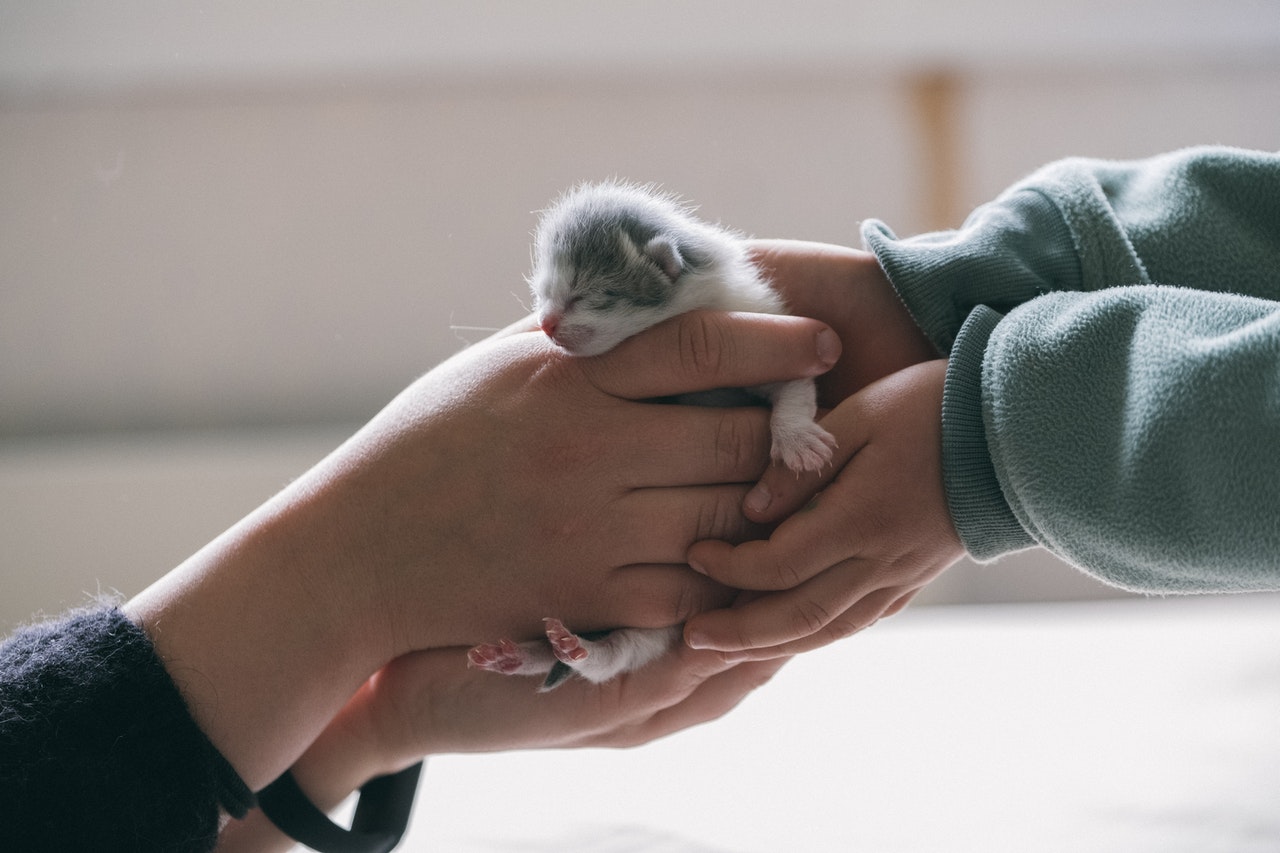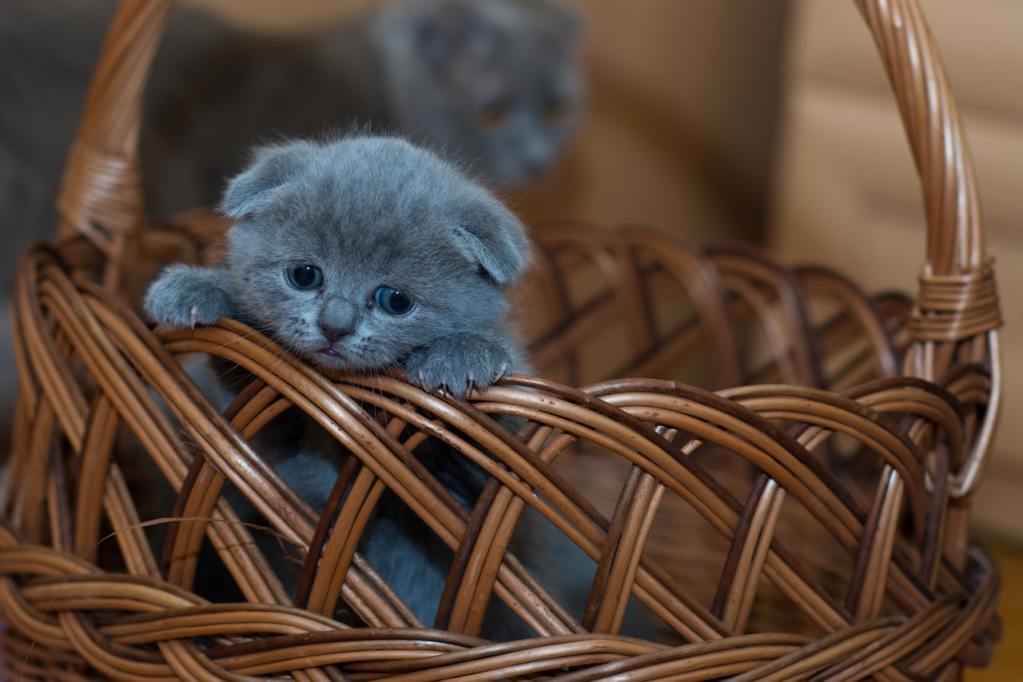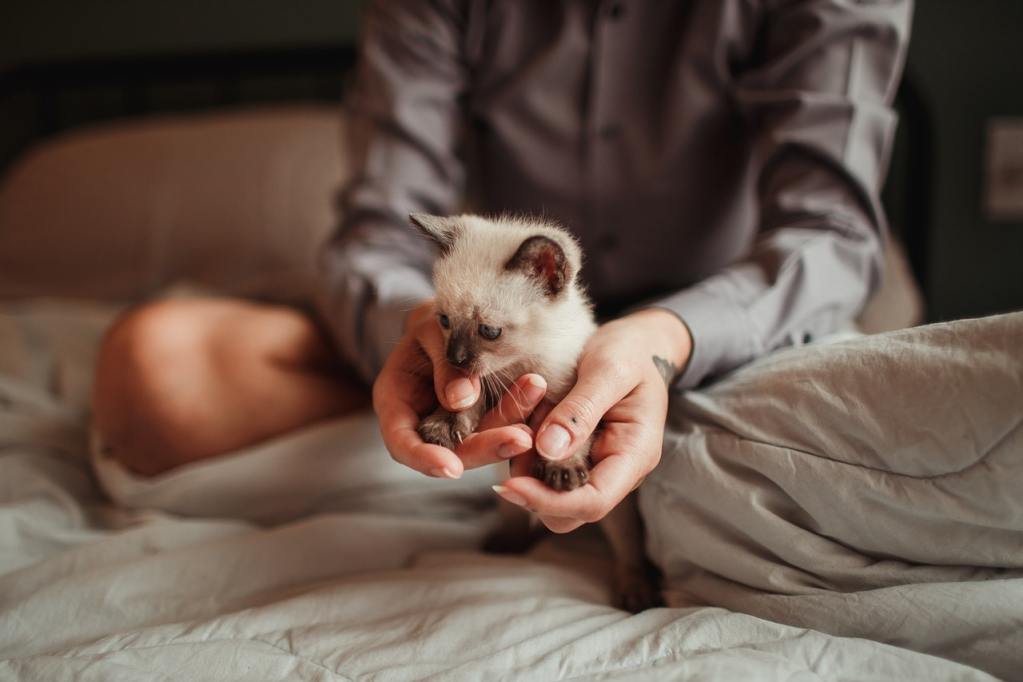Is there anything more adorable than a kitten whose eyes haven’t opened yet? That’s debatable. Although scientists have found that puppies are marginally cuter than kittens, cat people strongly disagree. Whether you’re a dog person or a lifelong cat aficionado, there’s something about tiny kittens that tugs at the heartstrings.
Have you ever wondered, “When do kittens open their eyes? What happens if they open their eyes too early?” You’re not alone. We’re here with the scoop on what veterinarians have to say about when kittens open their eyes, why you should never force a kitten to open their eyes too early, and what happens if your newborn kittens eyes open ahead of schedule.

When do baby kittens open their eyes?
Kittens are born blind and deaf, but their eyes open within the first two weeks of life. This usually happens when kittens are between 8 and 12 days old. Your new fur baby will have bright blue eyes when they first open, but their eye color is very likely to change as they age. However, cats with solid white or light fur are more likely to retain their baby blues, as the gene responsible for their white coloration is a dominant trait.
Is it bad if a kitten opens its eyes too early?
While kittens usually open their eyes in the first week or two of life, it’s not unheard of for kittens to open their eyes as early as 3 days old. The newborn kittens’ eyes are extremely sensitive to light, and young kittens are especially susceptible to eye infections. If your kitten opens her eyes when she’s only a few days old, she may suffer lasting damage to her vision.
Contact your veterinarian and keep your baby kitten in a dark room to protect her sensitive eyes. A kitten’s vision and hearing are weak at first, but your fur baby will develop night vision six times greater than ours, along with extremely keen hearing, within a matter of weeks.
Can you force a kitten’s eyes open?
You should never force a kitten to open her eyes before she’s ready. Not only could you damage her vision for life, but you run the risk of causing an eye infection. Symptoms of eye infections include:
- Swelling and inflammation
- Pus or other discharge from the eyes
- Eyelids sticking closed
- Flaking or dry discharge around the eyes
Take your kitten to the vet if you suspect she’s developed an eye infection. Eye infections are treatable with antibiotics, but if the infection is left unchecked, your kitten may be left permanently blind in one or both eyes.
How a kitten’s vision develops
Did you know your kitten’s eyes continue to develop after they’re born? Even when their eyes open, kittens are considered functionally blind for the first two weeks of life. Your kitten’s eyes will appear slightly opaque at first, but as the protective fluid surrounding the eyes turns clear, your kitten’s vision gains acuity. Once your tiny fur baby’s vision develops, she’ll be able to see well enough in your dark, cozy bedroom to pounce on your feet and demand food in the middle of the night.
What to do if an infection develops
Even if your kitten’s eyes open on schedule, and you do everything right, kittens can still develop eye infections. If your kitten develops an eye infection, take her to the vet for a checkup—and likely a prescription for antibiotic eye drops. Change her bedding regularly to prevent the spread of infection, keep her in a safe, dark room, and if her eyes get crusty, clean her eyes gently with a cotton pad soaked in warm water. Note: never use soap or another cleaning solution around your kitten’s eyes.
You’ll also want to keep an eye on any other cats in the household. Whether you’re caring for Mama Cat and the rest of her litter or you have a cat from another litter already present in your home, eye infections are highly contagious. As tempting as it may sound, don’t isolate your kitten unless the vet recommends it. Separating a kitten from her mother while she’s nursing could be detrimental to her health. It’s also important for your kitten to socialize with her littermates at this stage of development.

Take great care with your new kitten
Caring for a newborn kitten is hard work, but it also creates a lifelong bond between you and your fur baby. Yours will be one of the first faces your kitten sees when she opens her eyes, so she’ll associate you with safety and love. (Sadly, research shows that cats don’t actually think we’re their parents.) Give your kitten time to open her eyes on her own, never force them open, and contact your vet if something goes awry.
Editors' Recommendations
- When do kittens start eating food? Know the facts for your fur baby’s health
- When can kittens leave their mom? Don’t separate them too early
- A simple guide to what to feed tadpoles in your aquarium
- Why do cats like to sleep on the bed with people? This common behavior explained
- What fish can live with bettas? These are your best bets for fish buddies





